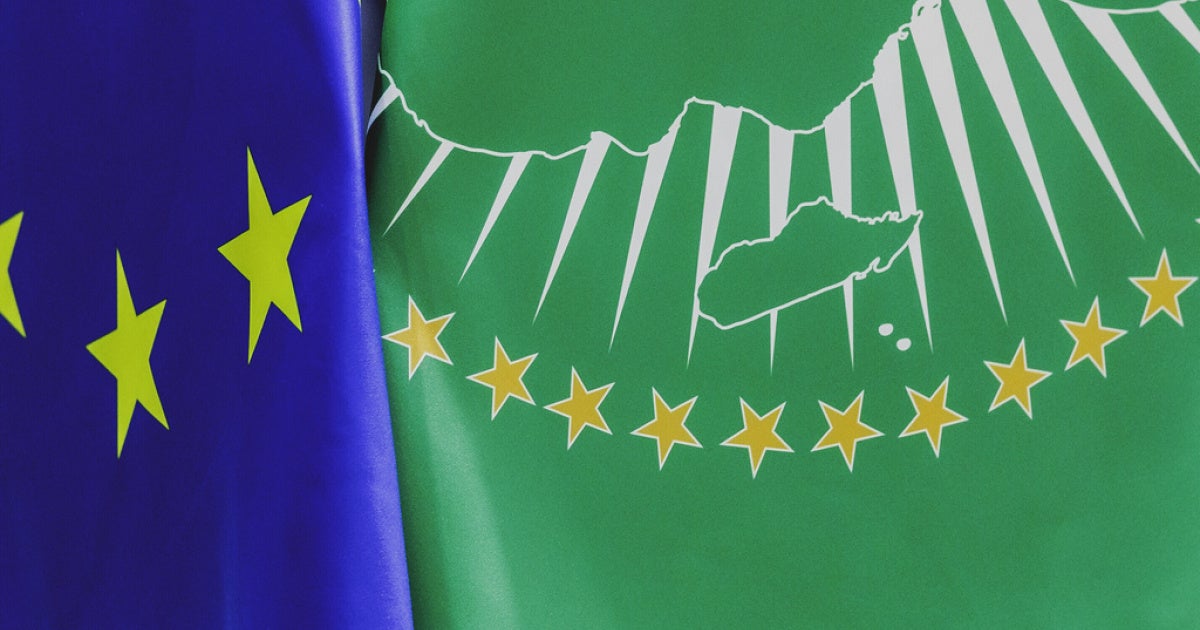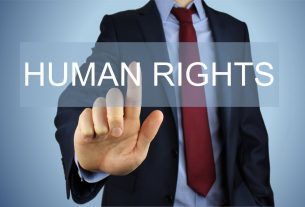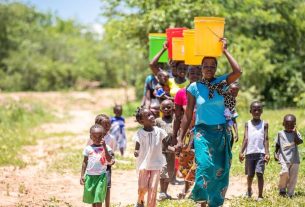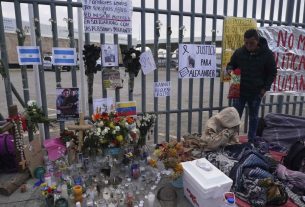(Nairobi, November 21, 2025) – The African Union (AU) and European Union should put respect for human rights and international humanitarian law at the center of their partnership, Human Rights Watch said today ahead of the blocs’ seventh summit on November 24-25, 2025, in Luanda, Angola. Both regional blocs should redouble efforts to tackle conflict-related atrocities and strengthen institutions and norms protecting rights.
“Increasing polarization globally highlights the need for both the European Union and the African Union to live up to their core responsibilities,” said Allan Ngari, Africa advocacy director at Human Rights Watch. “The blocs should spare no effort to hold those responsible for atrocities to account and support strategies on both continents and elsewhere to respond to longstanding and emerging human rights challenges.”
Abusive armed conflicts have displaced millions of civilians as warring parties have carried out deliberate and indiscriminate attacks on them, resulting in deaths, injuries, and other severe violations.
Since April 2023, in Sudan, the Sudanese Armed Forces, the Rapid Support Forces (RSF), fighting to control the country, and their allies have committed unlawful killings, torture and enforced disappearances, subjected women and girls to sexual violence, and blocked humanitarian access. Recent atrocities by the RSF in North Darfur’s capital, El Fasher, are reminiscent of the group’s past crimes, including an ethnic cleansing campaign in West Darfur. The EU and the AU should urgently work together to advance and support robust initiatives to protect civilians in Sudan and close the accountability gap.
Throughout the Sahel, notably in Burkina Faso, Mali, and Niger, Islamist armed groups have targeted civilians and caused extensive displacement. Government forces, at times with foreign fighters or pro-government militias, have led counterinsurgency operations that resulted in severe violations. The authorities have also cracked down on the political opposition, media, and peaceful dissent. The EU, which is debating a new approach to the Sahel, and the AU, which appointed a special envoy for the region, are in a strong position to jointly denounce atrocity crimes, call for robust protection of civilians, and press for investigations, accountability, and remedies for victims.
In the eastern Democratic Republic of Congo, Congolese forces and Rwandan forces with the Rwanda-backed M23 armed group have been committing serious violations of international humanitarian law, including mass killings, sexual violence, forced recruitment, forced labor and population transfers, and increasingly repressing civil society and media. Ongoing mediation efforts led by the United States and Qatar have not ended these abuses.
Human Rights Watch and the United Nations Office of the High Commissioner for Human Rights each documented the killing of over 140 civilians, largely ethnic Hutu, by the M23 in Rutshuru territory in July 2025. The Wazalendo coalition of militias, supported by the Congolese government, also abused civilians in areas under their control. The EU and the AU should condemn crimes by all parties and call for an end to Rwanda’s and Congo’s support to these abusive armed groups. They should also press for the M23 and Rwanda to allow access for international investigators to areas that they occupy.
The EU and AU should act in multilateral forums to address serious abuses in armed conflicts around the globe, including Israel’s atrocities in Gaza and the West Bank and to ensure accountability for Russia’s grave abuses in Ukraine.
At the international level, the AU and the EU should ensure that global institutions have the resources and political support needed to carry out their missions, Human Rights Watch said, including adequate resourcing for the UN human rights pillar, which is chronically underfunded. The International Criminal Court is under extreme pressure from the US, which has imposed sanctions on several court officials, including African and European nationals, a UN expert, and civil society groups, and from the Russian Federation, which issued arrest warrants for court officials.
The EU and the AU should reaffirm support for the court and its global mandate and commit to protecting it from coercive measures. They should also press their own members, notably Hungary, Burkina Faso, Mali, and Niger, to remain parties to the Rome Statute and encourage cooperation with the court.
The blocs should protect civilians from atrocities by supporting the adoption of an international treaty that would prevent and punish crimes against humanity. They should work to enable the broadest possible participation in the negotiations, including by legal experts, civil society groups, and victims associations that do not already have UN accreditation. The UN General Assembly laid out a multi-year roadmap for negotiations for a treaty, with the resolution adopted in December 2024.
The EU and the AU should also support the negotiations at the UN Framework Convention on International Tax Cooperation, a historic process initiated in 2022 that could contribute to more equitable global tax rules to address pressing human rights challenges in both EU and AU countries and support human rights economies. The EU and the AU should also affirm support for and implement the landmark International Court of Justice advisory opinion on climate change.
Finally, African leaders committed in July to dedicate the next decade to reparatory justice for Africans and People of African descent. To help realize the widely accepted right to reparation for lasting impacts of colonial atrocities, European governments should engage in human rights-based reparation processes. The AU should ensure that it collaborates with civil society in its efforts to establish frameworks for reparations that center on and empower communities.
“The Luanda Summit is an opportunity to translate both blocs’ commitments to human rights and international law into concrete actions,” said Philippe Dam, EU director at Human Rights Watch. “As civilians bear the brunt of brutal conflicts and multilateral institutions face attacks by states hostile to rights and international law, principled leadership from the AU and the EU is needed more than ever.”



